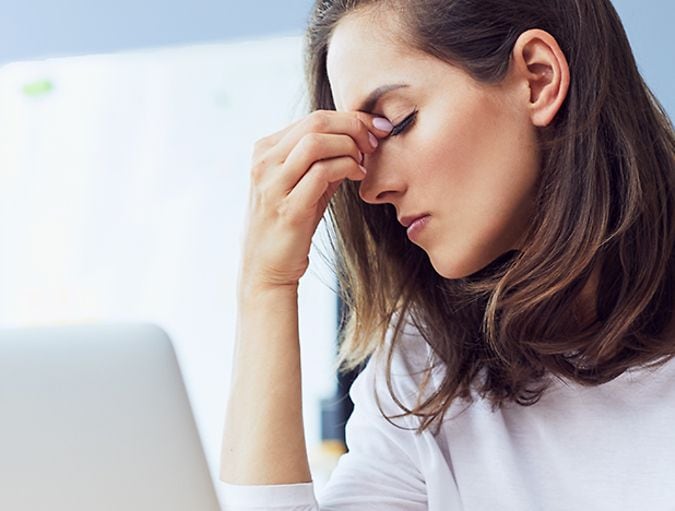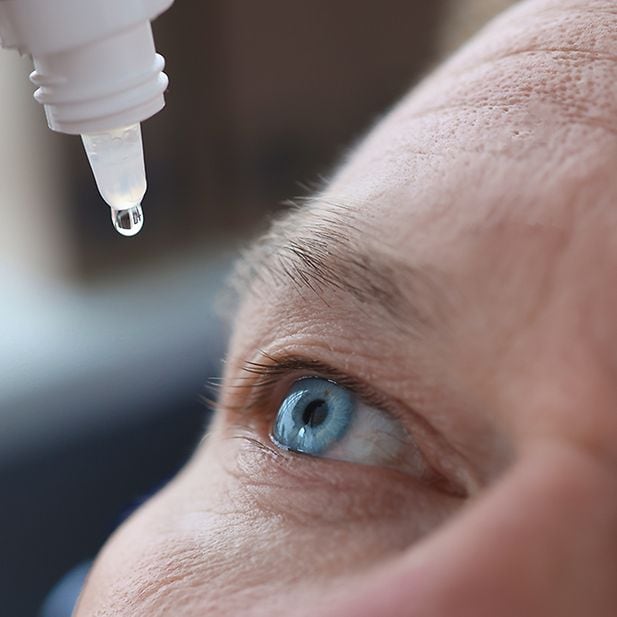Stress is one of the most common struggles of the 21st Century. Consistently caught between work and responsibilities, we often fail to take the rest that we actually need. In addition to this, the impact of the coronavirus pandemic has increased the stress and anxiety levels of many people. When we experience stressful situations, our body reacts and responds to this nervousness. This reaction can be reflected in different ways: hair loss, skin changes, headaches and of course, eyesight.
Free delivery for orders £59 and up
Free delivery for orders £59 and up
How does stress affect your eyesight?

Isolated periods of stress are normal. Faced with possible threats or sudden changes, our body reacts to adapt to possible challenges. However, if we live in a continuously stressful situation, we can suffer from chronic stress. When our body is exposed to prolonged stress, it can cause disturbances in the autonomic nervous system, leading to health diseases and visual problems. In this situation, living a stress-free life with balanced stress levels is key to your visual health.
Symptoms, visual problems, and how to alleviate them
As previously mentioned, stress can directly affect our visual health, causing mild to complex issues depending on the levels of stress we are exposed to. Generally, if stress-related vision problems are under control, they need not be serious. However, if symptoms persist over time, it is important to see an ophthalmologist to prevent any risk factors for eye health. Here you can find some of the most common eye disorders and their symptoms.
- Blepharitis. Blepharitis causes an inflammation of the eyelids that leads to, among other things, blurry vision, distorted vision, redness of the eyes, and itching. The use of eye drops can relieve this sensation, especially if you are a contact lens wearer.

- Eye twitching. This response of our eyes to periods of anxiety, nerves, or lack of sleep is known as myokymia. The muscle responsible for these eye twitches is the Müller muscle. It is responsible for directing the movement of the eyelid and is controlled by the sympathetic nervous system. To combat these spasms, it is important to get plenty of rest, and reduce caffeine intake.
- Visual fatigue. Eye strain is caused by prolonged exposure to screen use without any rest. The most common symptoms are blurred or double vision, flashes, dry eyes and headaches. To alleviate this sensation, it is important to take breaks, drink water, and follow the 20-20 rule.
- Amaurosis or vision loss. This condition is perhaps the most severe listed. High levels of stress can cause a leakage of fluid into the macula, located in the retina. This leakage can lead to central serous maculopathy, resulting in blurred or distorted vision and loss of visual acuity. In more severe situations, it can lead to sudden vision loss. These symptoms are transient and vision can be restored as soon as stress levels are reduced. However, it is important to see an ophthalmologist for any of these symptoms.
Try everclear Eye Drops
With a formula made from non-toxic ingredients, everclear artificial tears will provide long-lasting relief from dry eyes. The 10ml size is perfect to carry with you at all times. These drops are perfect for any type of contact lens, ensuring long-lasting hydration and maximum comfort. Its dispenser allows easy application for use at any time.
How to prevent visual problems caused by stress?
- Moisturise your eyes. As we have seen, stress can cause dry eyes. The use of artificial tears, especially if you are a contact lens wearer, is important to combat dry eye symptoms. Daily use of silicone hydrogel contact lenses helps to maintain hydration. Our team of opticians recommend everclear ELITE.
- 20-20-20 rule. Eye fatigue is another condition we can suffer. To combat its symptoms, we can take breaks every 20 minutes to look for 20 seconds at a fixed point 20 feet away. This exercise will relieve the stress on your eyes, and if not you can also try these other eye exercises.
- Visual hygiene. Stress, combined with poor eye hygiene, can be disastrous. Wearing daily contact lenses makes eye hygiene easier and you can dispose of them at any time.
- Healthy diet. A balanced diet and incorporating good-for-your-eyes foods can prevent stress peaks from affecting eye health.
- Rest and sport. An active life, away from screens and a sedentary lifestyle, and a good daily rest, will give your physical and visual health the care they need.
- Eye exams. It is important to have an eye test every 2 years. In addition, if you suffer from any of the above symptoms for a long period, it is important to visit your ophthalmologist to prevent eye health problems.

